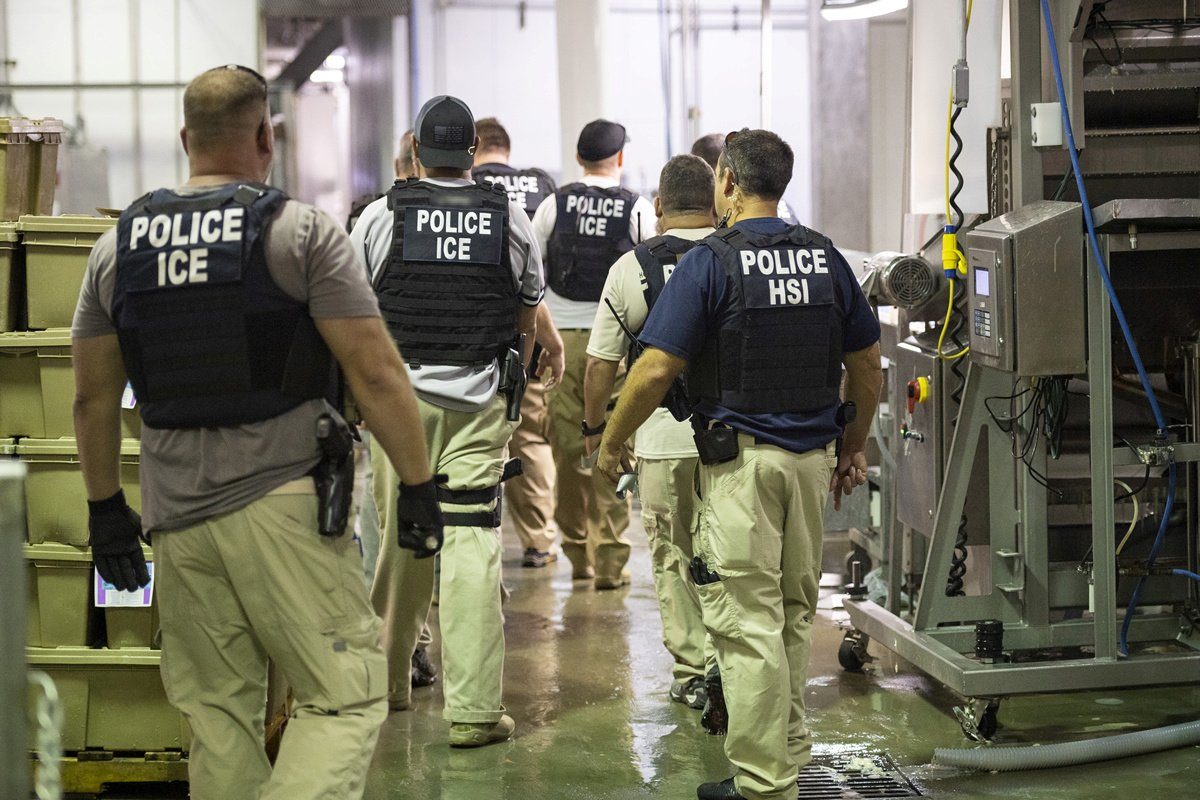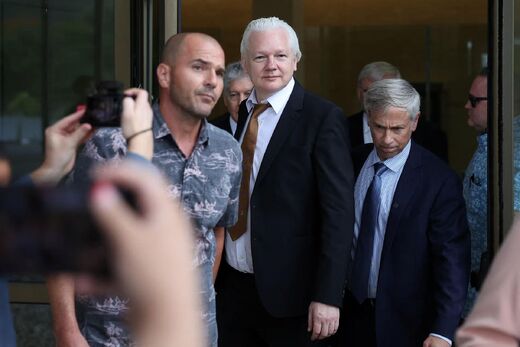
The Department of Homeland Security has identified over 400 immigrants from Central Asia and elsewhere who crossed into the U.S. in the past three years as "subjects of concern" because they were brought by an ISIS-affiliated human smuggling network, three U.S. officials tell NBC News.
While over 150 of them have been arrested, the whereabouts of over 50 remain unknown, the officials said, and Immigration and Customs Enforcement is looking to arrest them on immigration charges when they are located.
One of the U.S. officials said people affiliated with ISIS are operating as human smugglers in Central Asia and helping people there leave their countries and travel to the West, where they are then smuggled into the U.S. It is not known whether the human smuggling activity directly funds ISIS activity or whether ISIS members are making personal money through human smuggling on the side, the U.S. official said.
The official added that the U.S. has no indication that the more than 400 migrants brought to the U.S. by the network have plans to carry out terrorism in the U.S., but immigration agents are looking to arrest them out of an abundance of caution.
"In this case, it was the information that suggested a potential tie to ISIS because of some of the individuals involved in [smuggling migrants to the border] that led us to want to take extra care," said a senior Biden administration official, "and out of an abundance of caution make sure that we exercised our authority in the most expansive and appropriate way to mitigate risk because of this potential connection being made."
The official added that since ICE began arresting migrants brought to the U.S. by the ISIS-linked smuggling group several months ago, no information has emerged tying them to a threat to the U.S. homeland.
Many of the more than 400 migrants crossed the southern border and were released into the U.S. by Customs and Border Protection because they were not on the government's terrorism watchlist, according to the three officials, and the agency did not have information raising concerns at the time.
But recent terrorist attacks in Russia have fueled heightened concern about ISIS and its offshoot ISIS-K. In recent months, DHS has been looking more closely at migrants from Tajikistan, Uzbekistan, Moldova, Kyrgyzstan, Georgia and Russia, countries where ISIS-K has been active.
"The fact that the whereabouts were unknown is clearly alarming," said former FBI counterterrorism section chief Christopher O'Leary, who now works at security consulting firm The Soufan Group.
O'Leary said ICE is likely looking to make these arrests to get people who may pose a threat to national security into custody, even when there is no evidence they're plotting an attack.
"I believe the [U.S.] is scrambling to locate these individuals, and using the immigration charges is not uncommon," O'Leary said. "They are in violation of that law. And if you need to take somebody off the street, that's a good approach to do it."
Thousands of migrants from those countries are already inside the U.S. awaiting court decisions on whether they can stay.
Two officials said federal law enforcement agencies are "not panicking" about those people now identified as "subjects of concern," but are prioritizing them for arrest on immigration charges out of an abundance of caution.
Some of the 150 who were arrested have already been deported, the officials said. The whereabouts of other people in 17 states are known, and they may be arrested soon. Other migrants may have already left the U.S. voluntarily.
Some of those detained or deported to date have been charged with immigration violations. None have been charged with terrorism-related offenses.
After initial publication of this story, several Republicans, including the Trump campaign, have responded to NBC News' reporting by blaming the Biden administration for the entry of migrants via the ISIS-linked network.
"There's literally no one President Biden won't turn away — including illegal aliens from problematic countries smuggled in by networks connected to ISIS," said Rep. Mark Green, R-Tenn., chair of the House Homeland Security Committee.
Earlier this month, ICE arrested eight Tajik men in New York, Philadelphia and Los Angeles for their suspected ISIS affiliation. Two U.S. officials told NBC News the Tajik men did not enter the country through the same ISIS-affiliated network responsible for bringing the more than 400 migrants to the U.S.
NBC News was first to report on the similar arrest of an Uzbek man in Baltimore whose home country alerted the U.S. that he was affiliated with ISIS. He was arrested in April after living in the U.S. for over two years, two U.S. officials said. At the time he entered the U.S., there were no indicators he had any link to terrorism.
Counterterrorism officials say the threat of terrorism from migrants crossing the U.S. borders has historically been low. Since October, the number of migrants crossing into the U.S. from Mexico and Canada that authorities have matched with names on the terrorism watchlist has made up .014% of all CBP encounters, or slightly less than one out of every 7,000 migrants vetted, according to CBP data.
Recently, however, some current and former U.S. officials are sounding the alarm that vetting at the U.S. border needs to be improved for the sake of national security. They point to an increase in immigration from countries like Venezuela, China and across the Eastern Hemisphere that do not routinely share law enforcement information and criminal data with the U.S. as reason for concern.
NBC News reported in April that an Afghan named Mohammad Kharwin, 48, whose name was on the U.S. terrorist watchlist, was released by CBP because they did not have enough information at the time he crossed. He spent nearly a year inside the U.S. before he was arrested in San Antonio in February. He was released again on bond after a court hearing and then arrested again hours after NBC News published a story on his case.
The DHS Office of Inspector General recently outlined problems with vetting at the U.S. southern border, saying in a report, "The Department of Homeland Security's technology, procedures, and coordination were not fully effective to screen and vet non citizens applying for admission into the United States."
In a letter to DHS on Monday, the Republican-led House Homeland Security Committee asked for the unredacted version of that Inspector General report to "evaluate DHS's handling of this important national security matter."





Reader Comments
to our Newsletter